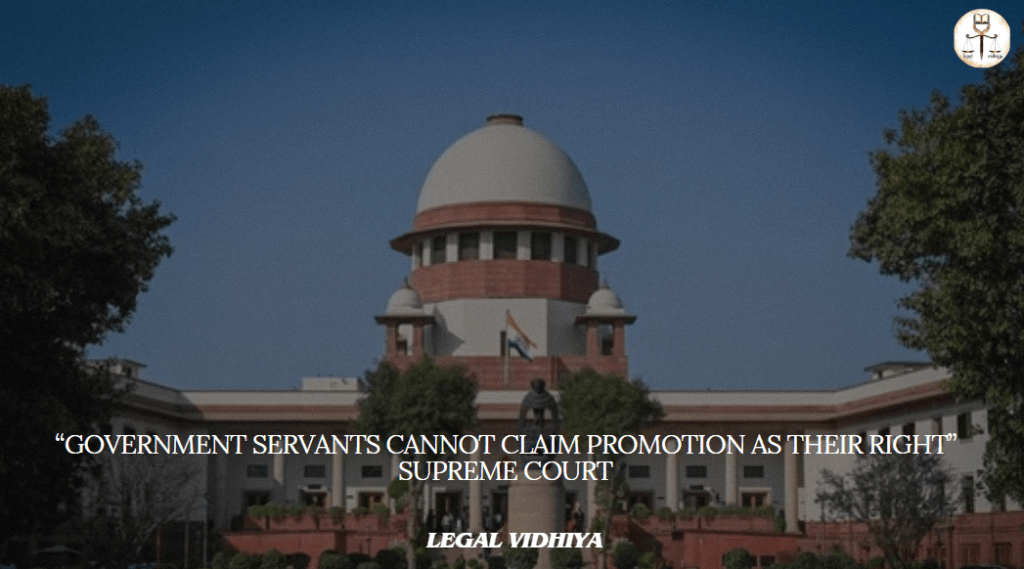
In the present case, the writ petition under article 32 was filed by the petitioners arguing that Rule 5 of the Gujarat State Judicial Service Rules, 2005 and Article 14 of the Indian Constitution were violated by the Select List, dated 10.03.2023, that the High Court of Gujarat had issued for the promotion of Senior Civil Judges to the Cadre of District Judge (65% quota). Rule 5 stipulates that promotions among Senior Civil Judges based on merit-cum-seniority and passing a suitability test must account for 65% of the recruitment to the District Judge cadre.
Pointes for determination
- What is the scope of principle of the ‘Merit-cum-Seniority’ in service jurisprudence; and
- Whether promotion of Civil Judges (Senior Division) to the cadre of District Judges in accordance with Rule 5(1) of the 2005 Rules and the Recruitment Notice dated 12.04.2022 issued by the High Court of Gujarat is contrary to the principle of ‘Merit-cum-Seniority’ as laid down in All India Judges’ Association
Court observed that in India, no government servant can claim promotion as their right because the Constitution does not prescribe criteria for filling seats in promotional posts. The Legislature or the executive may decide the method for filling vacancies to promotional posts based on the nature of employment and the functions that the candidate will be expected to discharge. The courts cannot sit in review to decide whether the policy adopted for promotion is suited to select the ‘best candidates’, unless on the limited ground where it violates the principle of equal opportunity under Article 16 of the Constitution.
- In Dr. Kavita Kamboj (supra), this Court speaking eruditely through one of us, Dr. D.Y. Chandrachud, CJI., observed that the principle of ‘Merit-cumSeniority’ is an approved method of selection where the emphasis is primarily on the comparative merit of the judicial officers being considered for promotion whereby even a junior who demonstrates greater merit than the senior can be considered for promotion
Court observed that The principles of ‘Merit-cum-Seniority’ and ‘Seniority-cum-Merit’ should by no means be regarded as rigid or inflexible in nature, otherwise, these judicial connotations would effectively assume the character of statutory stipulation laid down through various judicial pronouncements and would become applicable to all types of services, posts and promotions. This would lead to the transgression by the judiciary into the realms of policy making.
- The principle of ‘Merit-cum-Seniority’ and ‘Seniority-cum-Merit’ are a flexible and a fluid concept akin to broad principles within which the actual promotion policy may be formulated.
Court held Based on the merit-cum-seniority principle, the Court upheld the recommendations made by the Gujarat High Court in 2023 for the promotion of Senior Civil Judges to the 65% promotion quota of District Judges. In making this decision, it was noted that government employees cannot expect promotions as an inherent right because the Constitution does not specify a criterion for them. The Court observed that the legislature or executive branch has primary authority over promotion policies, with the judiciary’s review authority being restricted.
Case name: Ravikumar Dhansukhlal Maheta & Anr. v. High Court of Gujarat & Ors.
Name: Sushant Uniyal, BBA LL.B. (HONS), College: Law college dehradun,Intern under: Legal Vidhiya
Disclaimer: The materials provided herein are intended solely for informational purposes. Accessing or using the site or the materials does not establish an attorney-client relationship. The information presented on this site is not to be construed as legal or professional advice, and it should not be relied upon for such purposes or used as a substitute for advice from a licensed attorney in your state. Additionally, the viewpoint presented by the author is of a personal nature




0 Comments